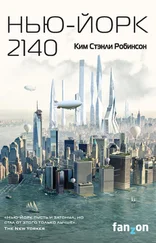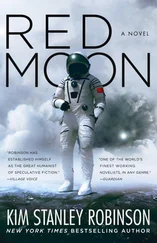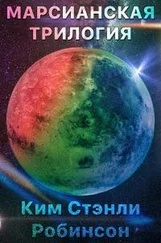He jerked out of it. Too uneasy to wake up fully, he dove back below again, into sleep. Uneasy sleep, more dreams. A crowd on the hill.
When finally he woke to full consciousness, he got up and walked around the hilltop. It was just before dawn.
He found he had a plan. Somewhere in the night… he shivered, frightened by what he didn’t know. But he had a plan. He thought about it until sunrise, and then, stiff and cold, he walked back down to home and bed.
The next morning he went to talk to Hank about his plan. Hank thought it was a good idea, and so did Oscar. So they went to talk to Doris. She laughed out loud. “Give me a couple of days,” she told them. “I can make it by then.”
“I’ll let people know what’s happening,” Hank said. “We’ll do it Sunday.”
* * *
So on Sunday morning they held a memorial service for Tom Barnard, up on Rattlesnake Hill. Doris had cast a small plate, ceramic overlaid on a bronzelike alloy, with the overlay making a bas-relief border, and in the corners, animal figures: turtle, coyote, horse, cat. In the middle, a brief message:
In Memoriam, Thomas William Barnard
Born, El Modena, California, March 22nd 1984
Lost At Sea In The Pacific, August 23rd 2065
There Will Never Come An End To the Good That He Has Done
Hank conducted a brief ceremony. He was dressed in his Unitarian minister’s shirt, and at first he looked like he was in costume, his face still lined and brick-red with sun, his hair still a tangle. And when he spoke it was in the same Hank voice, nothing inflated or ministerial about it. But he was a minister, in the Unitarian Church (also in the Universal Life Church, and in the World Peace Church, and in the Ba’hais), and as he talked about Tom, and the crowd continued to collect on the crown of the hill—older people who had known Tom all their lives, younger people who had only heard of him or seen him in the canyonlands, members of Hank’s congregation, friends, neighbors, passersby, until there were two or three hundred people up there—all of them listened to what Hank had to say. Because there was a conviction in Hank, an intensity of belief in the importance of what they were doing, that could not be denied. Watching him Kevin lost his sense of Hank as daily partner and friend, the rapid voice tumbling words one over the next picked Kevin up and carried him along with the rest of them, into a shared sense of values, into a community. How Hank could gather them, Kevin thought. Such a presence. People dropping by the work sites to ask Hank about this or that, and he laughing and offering his advice, based on some obscure text or his own thoughts, whatever, there was never any pretense to it; only belief. It was as if he were their real leader, somehow, and the town council nothing at all. How did he do it? A matter of faith. Hank was certain they were all of them spiritual beings, in a spiritual community. And as he acted on that belief, those who had anything to do with him became a part of it, helped make it so.
“People die, rivers go on. Mountains go on.”
He talked about Tom, told some of Tom’s life story, incidents he had observed himself, other people’s stories, Tom’s stories, all in a rapid patter, a rhythm of conviction, affection, pleasure. “See one thing he does, know the rest. Now some of you know it and some of you don’t, but this hilltop was nothing but prickly pear and dirt till Tom came up here. All these trees we stand under were planted by Tom when he was a boy, to give this hilltop some shade, to make it a good place to come up and look around, take a look for the ocean or the mountains or just down into town. And he kept coming up here for the rest of his life. So it’s fitting that we make this little grove his memorial. It was a place he liked, looking over a place he loved. We don’t have his body to bury, but that’s not the important part of him anyway. Doris has cast a plaque and I’ve cut a flat spot into this big sycamore here, and all of us who care to, can help nail it in. Take a light whack so everyone can get a shot at it, and try not to miss and hit Doris’s handiwork. It looks like the ceramic might break off.”
“Are you kidding?” Doris said. “This is a new secret bonding, the ceramic and the metal interpenetrate each other.”
“Like us and Tom’s spirit, then. Okay, swing away.”
And so they stood the plate against the largest sycamore in the grove, about head high, and passed out a few hammers from Hank’s collection, and they swirled around the tree in a loose informal knot, chatting as they waited their turn to tap one of the four nails into the tree.
Wandering around greeting people Kevin saw Ramona, who gave him a big smile. He smiled back briefly, feeling serious, calm, content.
Ah. There down the slope a ways stood Alfredo, looking dark. Kevin felt a quick surge of bitter triumph. He decided that it wasn’t a good time to talk to him. Best not to get into an argument at his grandfather’s funeral.
But Alfredo brought the argument to him. Kevin was standing away from the crowd, watching it and enjoying the casual feel of it, the sense of neighborhood party. Tom would have liked that. Then Alfredo came up to him and said angrily, “I should think you’d be ashamed of using your grandfather’s death like this.”
Kevin just looked at him.
“How do you think it would make Tom feel?”
Kevin considered. “He would love it.”
“This doesn’t change anything, you know. We can build around it.”
Kevin shook his head, looking past Alfredo, up at the grove. “This changes everything. And you know it.” All of the people there would now think of the hill as a shrine, inviolate, and as they all had friends and family down below… Little ghost of his hatred: “Don’t fuck with this hill any more, Alfredo. There’s no one will like you if you do.”
Then he saw who was standing before the memorial tree, about to take a swing with a hammer. He pointed. Alfredo turned around just in time to see Ramona smack a nail, then pass the hammer along.
That would make the difference. Alfredo would never dare cross Ramona on an issue this charged, not given everything else that had happened, the way it had all tangled together.
“Build it somewhere else,” Kevin said harshly. “Build it down in town, by Santiago Creek or somewhere else nice. Tell your partners you gave it a try up here, and it didn’t work. Whatever. But leave this hill alone.”
Alfredo turned and walked away.
* * *
Later Kevin went to the tree to put the final knocks on all four nails: one for Nadezhda, one for his parents, one for Jill, one for himself. He touched the broken bark of the tree. Warm in the sunlight. This living tree. He couldn’t think of a better memorial.
After the ceremony, Hank’s idea of a wake: a party in Irvine Park, lasting all that afternoon. A lot of beer and hamburgers and loud music, flying frisbees, ecstatic dogs, barbeque smoke, endless innings of sloppy softball, volleyball without lines or scoring.
In the long summer twilight people drifted away, coasting down Chapman, their bike lights like a string of fireflies flickering between the trees. Kevin biked home alone, feeling the cool sage air rush over him. A good life, he thought. The old man had a good life. We can’t ask for anything more.
* * *
So it came about that one morning Kevin Claiborne woke, under an orange tree in his house. Big day today: Ramona and Alfredo were getting married in the morning, and in the afternoon they were having the reception down in the park, next to the softball diamonds. Half the town would be there.
Читать дальше
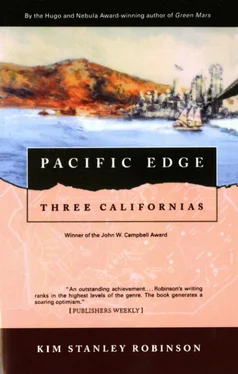
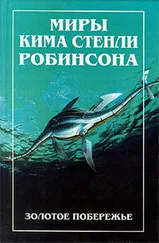
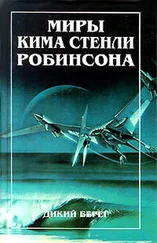

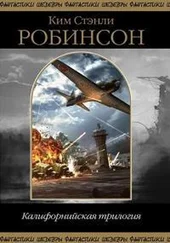
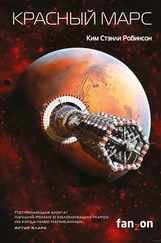

![Ким Робинсон - Годы риса и соли [litres]](/books/394367/kim-robinson-gody-risa-i-soli-litres-thumb.webp)
